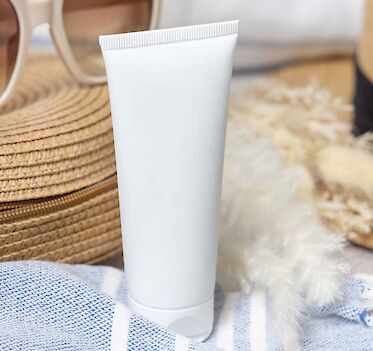How Daily Sunscreen Use Protects Your Skin from UV Damage and Sunburn During Outdoor Activities
Spending time outdoors is great for your mental and physical health, but too much sun exposure without protection can lead to serious long-term skin damage. Whether you're walking the dog, gardening, attending a sporting event, or just enjoying the fresh air, wearing sunscreen is one of the easiest ways to protect your skin and overall health.
According to Dr. Spencer Reynolds, provider at HealthCARE Express, many people still think sunscreen is only necessary for the beach or a pool day. "But UV exposure happens every day," he explains. "If you’re spending any time outside, especially for activities like sports, yard work, or errands, you need sun protection. It should be part of your daily routine."
Understanding UV Exposure
The sun emits ultraviolet (UV) rays, which are powerful enough to damage your skin cells over time. There are two primary types: UVA rays, which contribute to wrinkles and premature aging, and UVB rays, which are the main cause of sunburns and can also lead to skin cancer.
Even on cloudy or cooler days, up to 80% of UV rays can still reach your skin, making daily protection important no matter the weather. Dr. Reynolds emphasizes that "people are often surprised by how much UV damage occurs on days that don’t feel ‘sunny.’ But UV rays don’t take a break just because it's overcast."
Why Sunscreen Matters for Outdoor Activities
You don’t have to be sunbathing to get sun damage. Every day activities like driving, coaching a game, or walking to your mailbox can expose your skin to harmful UV radiation. Over time, that exposure adds up and can increase your risk of issues like sunburn, skin discoloration, premature aging, and skin cancer.
"Skin cancer is the most common type of cancer in the U.S., but it’s also one of the most preventable," says Dr. Reynolds. "Sunscreen is a simple step that provides long-term protection."
He also points out that sunscreen helps reduce inflammation and irritation caused by sun exposure, especially for people with sensitive skin or existing skin conditions.
Who Should Wear Sunscreen?
The answer is simple: everyone. No matter your age, activity level, or skin tone, sunscreen is a must when spending time outdoors.
"It’s a myth that people with darker skin don’t need sunscreen," Dr. Reynolds says. "While melanin does provide some natural defense, it doesn’t eliminate the risk of sun damage or skin cancer. Everyone can benefit from sunscreen, regardless of their skin tone."
That includes children, teens, adults, and seniors. If you’re outdoors—even for just 15–30 minutes at a time—your skin needs protection.
Choosing the Right Sunscreen
When choosing sunscreen, Dr. Reynolds recommends looking for a broad-spectrum product that protects against both UVA and UVB rays, with an SPF of at least 30. If you’re going to be sweating or swimming, make sure it’s water-resistant.
Application is just as important as the product itself. "Apply sunscreen 15 to 30 minutes before going outside, and make sure to reapply every two hours—especially if you're sweating or in the water," Dr. Reynolds advises. He also reminds people not to forget commonly missed spots like the tops of the ears, the back of the neck, and the tops of your feet.
Sun Protection Is Year-Round
A lot of people think sunscreen is only for hot summer days, but UV rays are present year-round—even during cooler seasons and on cloudy days. Incorporating sunscreen into your daily routine is one of the best ways to prevent cumulative damage to your skin.
"Think of sunscreen like your seatbelt," Dr. Reynolds adds. "You don’t only wear it when the road looks dangerous—you wear it because it protects you every time you’re out."
Let HealthCARE Express Help You Stay Safe in the Sun
At HealthCARE Express, we’re always here to support your health — and that includes helping when sun exposure goes a little too far. If you’re dealing with a sunburn or skin irritation, our team is ready to provide fast, effective care so you can feel better, faster. Walk-ins are welcome, and we’re here when you need us.
